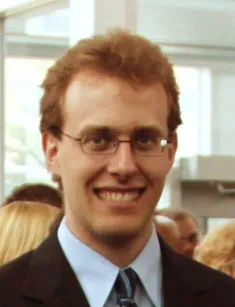An Introduction to Diffusive Molecular Communication
Adam Noel
University of British Columbia, Vancouver, Canada
Abstract:
Molecular communication is a promising design strategy for the transfer of information between devices that have functional components on the order of nanometers in size. The ability for such devices to communicate would significantly expand their cumulative potential, thereby enabling applications such as cooperative diagnostics and drug delivery in biomedicine, bottom-up component design in manufacturing, and sensitive environmental monitoring. Molecular communication uses physical molecules as information carriers, which are released by the transmitter and propagate to an intended receiver. Diffusion-based communication is commonly found in cellular systems when small molecules need to quickly travel short distances. Due to its simplicity and its current implementation in nature, diffusion has also often been chosen by communication researchers for the design of synthetic nanonetworks. In this talk, we motivate the use of diffusion as a means of communication. We present the characteristics of diffusive environments and highlight the challenges introduced by effects such as noise, flow, and intersymbol interference. We draw inspiration from biological mechanisms to propose strategies for successful communication, including channel modification and the use of a weighted sum detector at the receiver.
Biography:
Adam Noel (B.Eng., Memorial, 2009; M.A.Sc., UBC, 2011) is a PhD Candidate at the University of British Columbia, Vancouver, Canada, in the Department of Electrical and Computer Engineering. He is working under the supervision of Prof. Robert Schober and Prof. Karen C. Cheung. He is currently a Visiting Researcher at the Institute for Digital Communication at the Friedrich-Alexander-University at Erlangen-Nuremberg (FAU), Erlangen, Germany. For his Masters' research he studied the optimization of cooperative spectrum sensing for cognitive radio, and his PhD work is on the design and analysis of communication systems that are based on molecular diffusion. He is currently holding a Postgraduate Scholarship from the Natural Sciences and Engineering Research Council of Canada.
